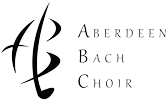Programme notes, Commentary and Glossary by Peter Parfitt
MESSIAH - THE TEXT, WITH A MUSICAL COMMENTARY
˚See glossary at the end of this commentary which explains some of the technical musical terms used.
[Words in square brackets indicate Jennens’ omissions, additions and deviations from the original text.]
PART 1
As he would with any opera, Handel creates a sinfonia type overture to Messiah which takes the form known as a French overture – a tradition for a work of a serious nature. This is a rather severe binary˚ form piece with a slow opening, written in a minor key, and apparently avoiding any hint of major tonality, based heavily on dotted fanfare rhythms with a homophonic˚ texture, followed by a much faster polyphonic˚ or fugal˚ passage which is heavily imitative˚. Its orchestration is quite simple: two oboes, strings and continuo consisting of keyboard, cello, double bass and bassoon.
|
OVERTURE |
|
E minor turns immediately to E major as the tenor begins the narrative with Isaiah’s optimistic prophecy of salvation. Accompanied by gently pulsating chords, Handel sets the first part of the opening sentence always to a phrase which falls, in a pacifying shape – as if the words of Isaiah are being handed down, whereas the second part of the opening sentence is set always to a rising phrase of authority. We are only five bars into the opening movement of text when Handel uses the first of many rhetorical devices that will be deployed – that of ‘epizeuxis’ which is the repetition of words within a sentence to emphasise them – ‘comfort ye, comfort ye my people. The word, iniquity, is symbolically set to a rising tritone˚ and the word ‘pardoned’ settles on a major chord with a palpable release of tension. The final sentence is set to secco˚ recitative and is particularly declamatory in nature. The rhetorical device of ‘apocope’ is used here – this is where the music regularly drifts into silence or is cut off for effect. |
|
Recitative Tenor Isaiah XL, vv 1-3 |
Comfort ye my people, saith your God. Speak ye comfortably to Jerusalem, and cry unto her, that her warfare is accomplished, that her iniquity is pardoned. The voice of him that crieth in the wilderness, prepare ye the way of the Lord, make straight in the desert a highway for our God. |
This fast and anticipatory aria is jammed full of word painting. The word ‘exalted’ is set to a sequence of long rising melismas˚, and the ‘mountain and hill made low’ with a falling phrase to the final word, with ‘mountain’ always being at a higher pitch than ‘hill’. The word ‘crooked’ rocks back and forth between adjacent notes and the word ‘straight’ is set to a single unwavering note. |
|
Aria Tenor Isaiah XL, v 4 |
Every valley shall be exalted, and every mountain and hill [shall be] made low; [and] the crooked [shall be made] straight, and the rough places plain. |
The orchestra begins this first choral movement with a ritornello˚ phrase. When the vocal parts take up this phrase, individual parts and pairs of parts alternate with the full SATB texture. There are two distinct musical shapes to this opening clause; ‘And the glory of the Lord’ is triadic˚ and outlines a rising octave, whilst ‘shall be revealed’ takes the music back down in pitch sequentially˚. ‘For the mouth of the Lord’ is set to a pedal˚ at various points in the texture, both top and bottom, as if to emphasise the gravitas of this sentence. As is common in Handel, this triple time music is rife with hemiolas˚ – especially at the cadences˚. Handel uses the rhetorical device called ‘noema’ in this movement – this is where the four choral parts all come together at times to sing the same words simultaneously, giving emphasis to the text. |
|
Chorus Isaiah XL, v 5 |
And the glory of the Lord shall be revealed, and all flesh shall see it together, for the mouth of the Lord hath spoken it. |
The mood changes abruptly here and the focus of the work now moves to the prophecy of the coming of the Messiah. The jagged, dotted fanfare rhythms of the overture reappear in this accompagnato˚ recitative, and the full force of the bass voice is heard as we prepare for the regal word of the Lord. (If this were an opera, one might imagine the singer rushing on stage from the wings.) The minor key of the overture also returns. Again, word painting can be heard in the melismatic setting of the word ‘shake’ which contrasts with the declamatory nature of most of the rest of the movement. The omission of the word ‘for’ at the start makes the text more direct and assertive. The solo bass voice is reserved for the representation of anger, rage and darkness in this oratorio. |
|
Recitative Bass Haggai II, vv 6-7 Malachi III, v 1 |
[For] Thus saith the Lord of hosts; yet once, [it is] a little while, and I will shake the heavens, and the earth, [and] the sea and the dry land. And I will shake all nations, and the desire of all nations shall come; [and] the Lord, whom ye seek, shall suddenly come to his temple, even the messenger of the covenant, whom ye delight in, behold he shall come, saith the Lord of hosts. |
Aberdeen Bach Choir
Scottish Registered Charity Number SC008609


























